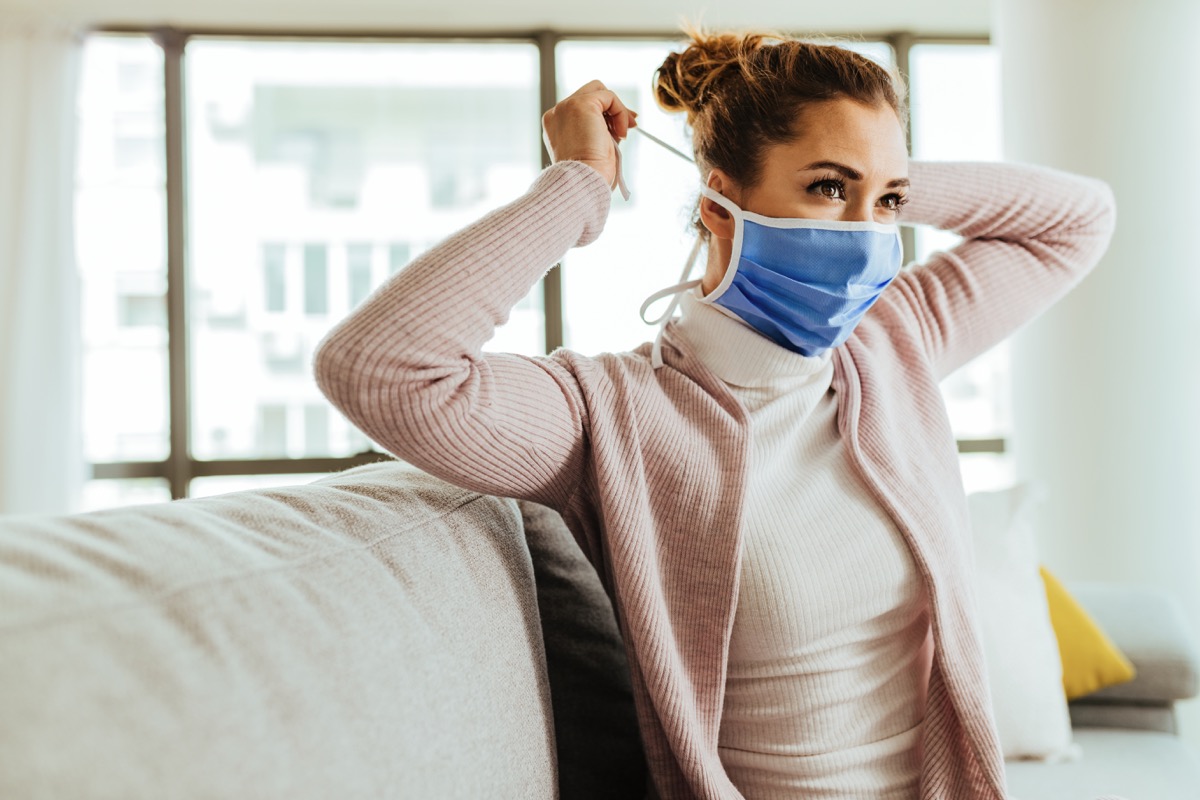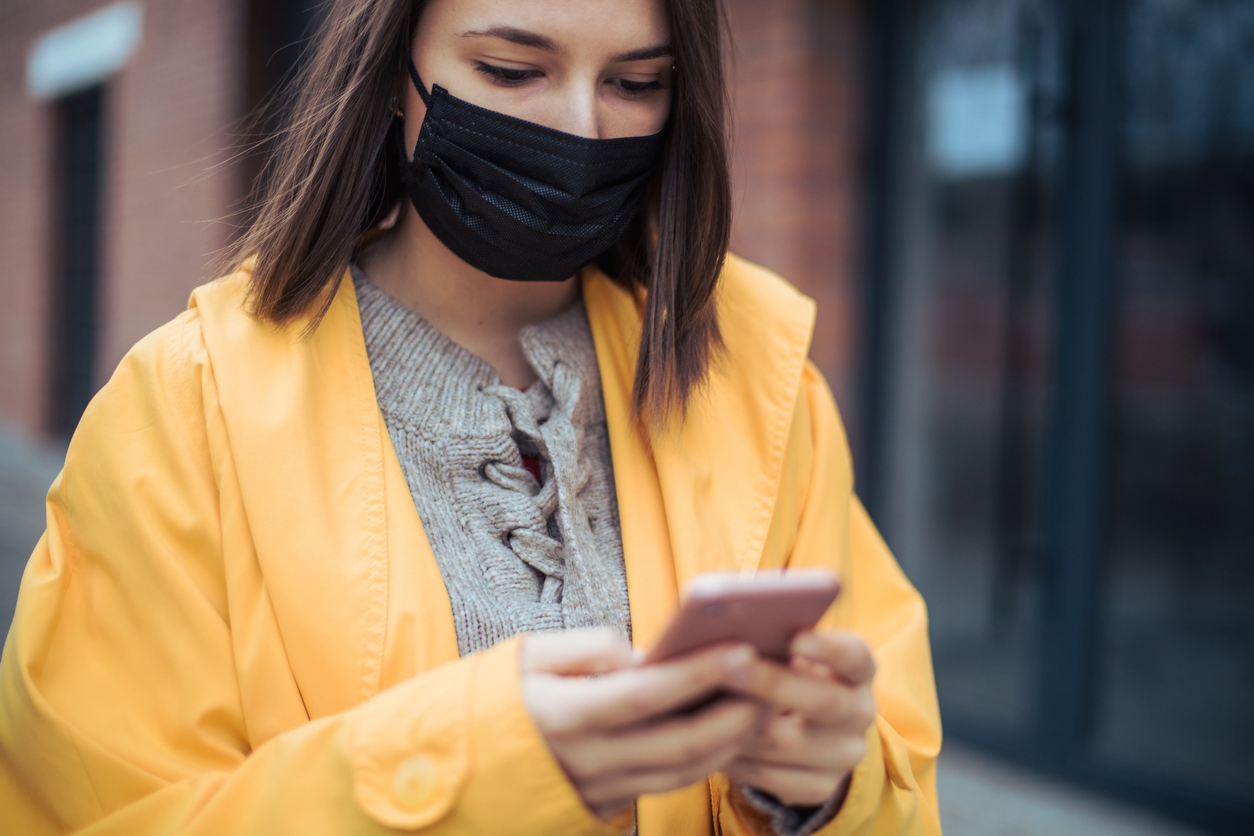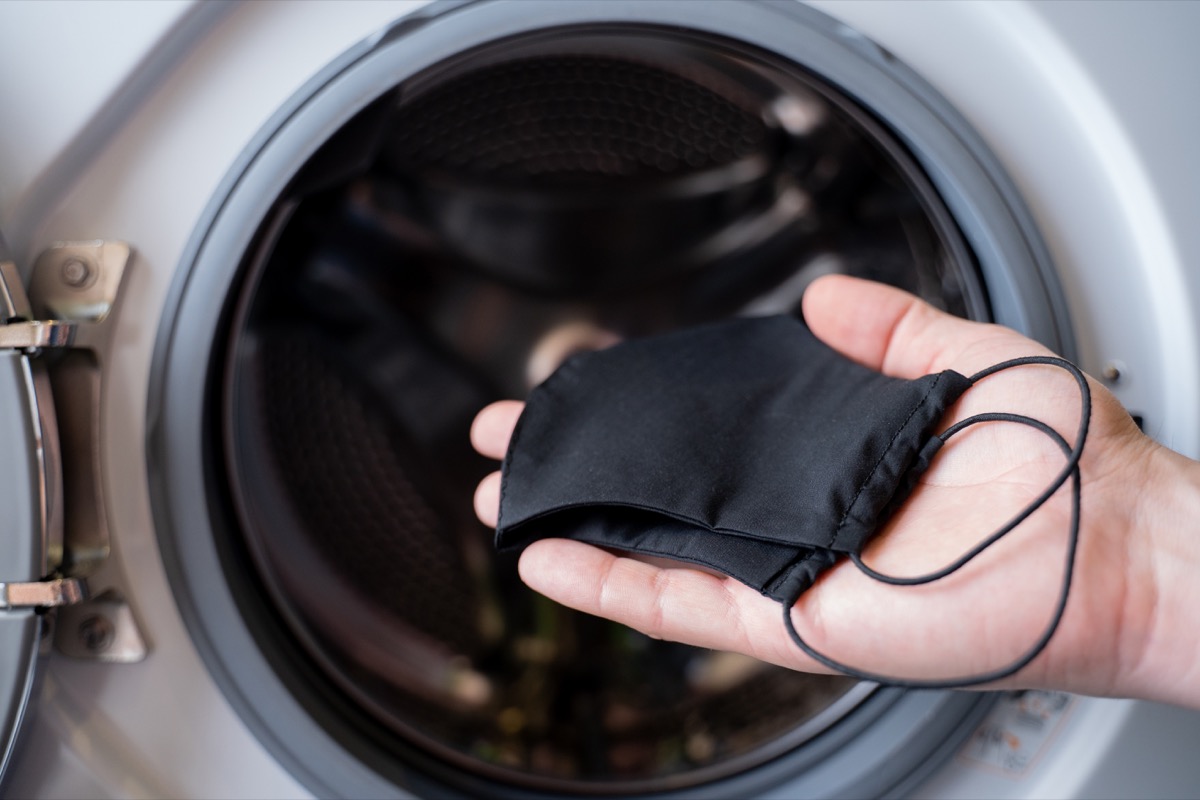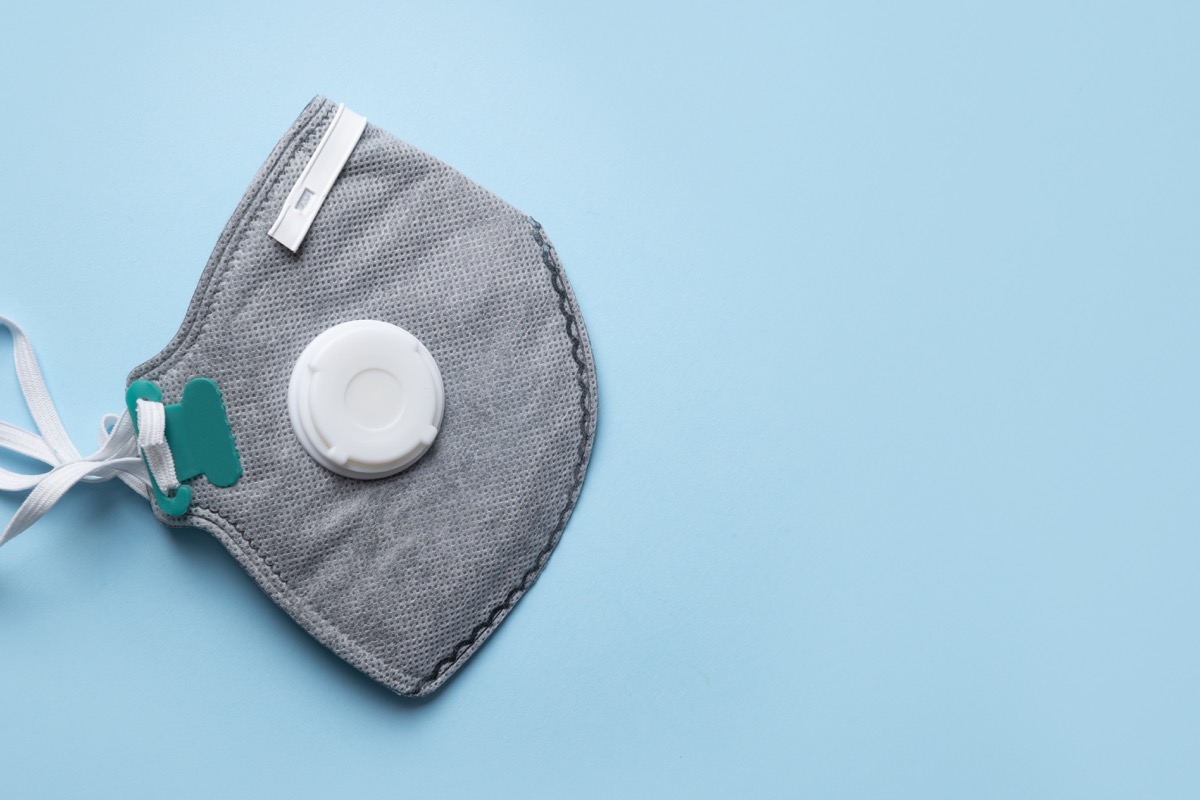For their study, researchers out of the University of British Columbia tested multiple mask styles and 41 different fabrics to see how they blocked droplets. After comparing the results, they concluded that masks that consist of two layers of low-thread-count quilting cotton plus a three-ply dried baby wipe as a filter were very effective at stopping droplets from spreading. “Baby wipes are typically made of spunlace and spunbond polypropylene—similar to the types of polypropylene found in medical masks and N95 respirators,” Jane Wang, PhD, a clinical professor in the faculty of medicine at the University of British Columbia School of Biomedical Engineering, explained in a statement. In fact, according to Steven N. Rogak, PhD, a University of British Columbia professor of mechanical engineering who specializes in aerosols, “A well-fitted, well-designed cloth mask with a baby-wipe filter will be more effective at filtering 5- or 10-micron particles than a poorly fitted N95 mask.” According to a 2012 research article published in BMC Pulmonary Medicine, the average human cough aerosol ranges from .01 to 900 microns in size, suggesting that the addition of a dry baby wipe filter to an average cloth mask could be enough to keep COVID-contaminated respiratory droplets from spreading. However, that’s not the only way experts say you can make your mask safer. Read on to discover what to do to ensure you’ve got the best protection against COVID. And for the latest mask news, Dr. Fauci Says the CDC May Make This Major Mask Change Soon. Read the original article on Best Life. While cloth masks may be the standard for everyday wear for many people, the type of material your mask is made of may significantly factor into its efficacy. According to the University of British Columbia researchers, the outer layer of a mask should ideally be made of knit nylon, polyester satin, double-knit cotton, or quilting cotton; simple-weave silk, double-knit cotton, or quilting cotton for the inner layer; and a filter in between. The researchers noted that, in addition to the protection conferred by the aforementioned mask components, their comfort and breathability makes them easy to wear over a prolonged period of time. And if you want to make sure you’re protected, avoid The One Type of Face Mask That’s “Unacceptable,” Warns the Mayo Clinic. N95s may be the gold standard when it comes to protection against COVID, but any mask you wear is only as good as its fit. “Even an N95 mask is going to take in large, massive droplets with lots of viruses if it does not seal against the face,” says Rogak, who explains that pleated masks are the most prone to gapping and leaking. “You need to create a bit of an air pocket, with a bigger curvature in front, so that the whole mask is engaged in air exchange.” And for more on the masks to steer clear of, check out The CDC Warns Against Using These 6 Face Masks. If you’re wearing a reusable mask, the CDC recommends washing it at least once a day, and preferably every time it gets dirty. In fact, according to a study published in the Sept. 2020 volume of BMJ Open, “a well-washed cloth mask can be as protective as a medical mask.“ae0fcc31ae342fd3a1346ebb1f342fcb However, attempting to reuse an N95 by washing it may be a fatal error. The University of British Columbia researchers found that washing N95 masks with soap and water can “significantly reduce their filtration properties.” And for more COVID safety news delivered to your inbox, sign up for our daily newsletter. Though they may seem as though they’d make it easier to breathe, if your masks has vents, it’s not stopping the spread of COVID. According to the Centers for Disease Control and Prevention (CDC), vented masks “may not prevent you from spreading COVID-19 to others. The hole in the material may allow your respiratory droplets to escape.” And before you return to your pre-pandemic activities, beware that Dr. Fauci Just Said This Is the Only Safe Way to Eat at a Restaurant.



